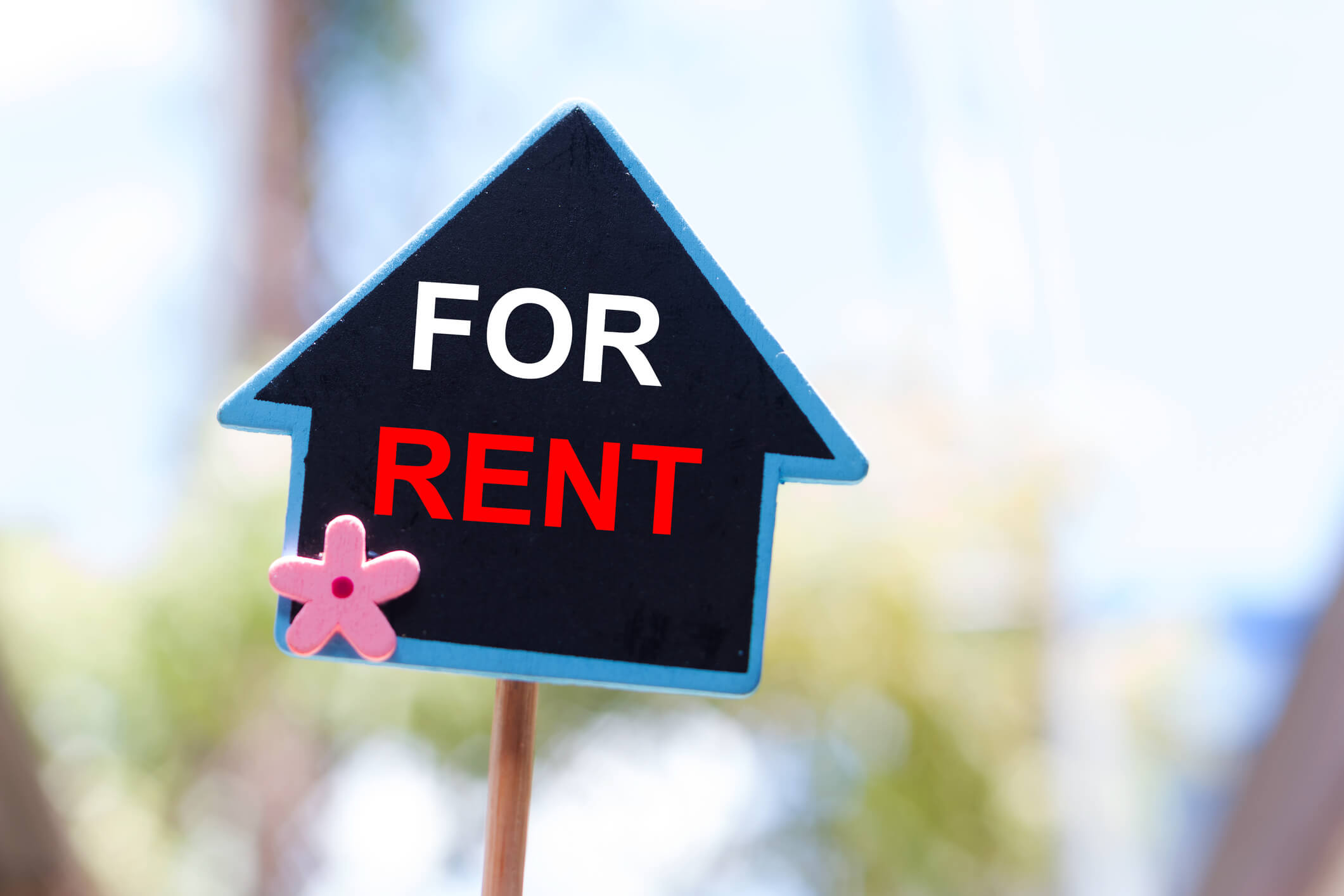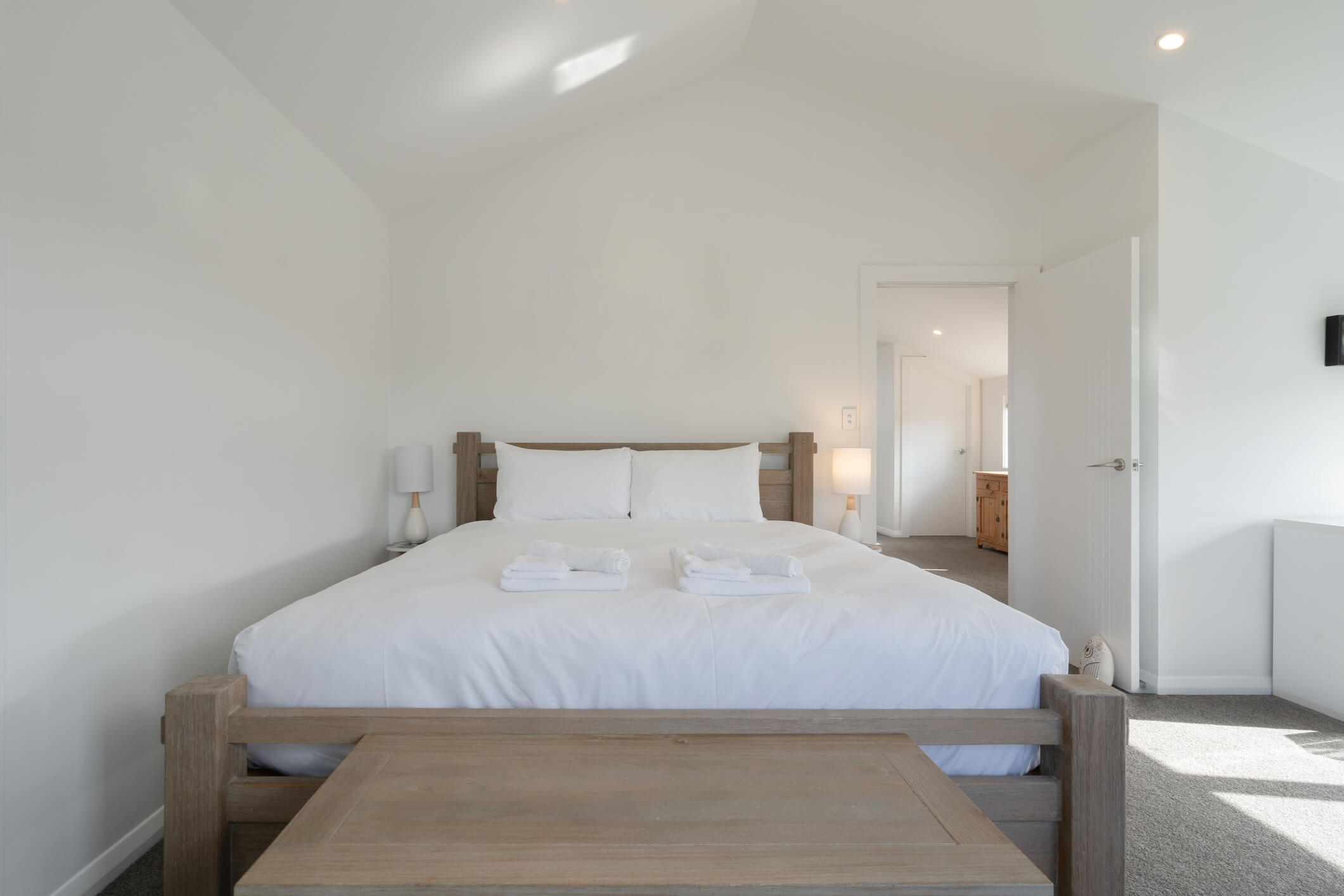Last Updated on January 7, 2025
Renting out your holiday home or buy-to-let on a home-sharing website such as Airbnb or Vrbo can yield attractive returns.
However, tax on Airbnb property abroad can be perplexing.
Many overseas landlords don’t realize how much tax they owe as a host. Are you getting all of your tax breaks?
We’ve answered some of the most common tax questions from short-term rental hosts with properties abroad like you.
Here is what you need to know about tax on Airbnb property abroad.
Do I have to pay taxes on Airbnb income?
Yes, in general, Airbnb income is taxable. If you are renting out your property abroad, you have to pay income tax on it.
In general, you will be able to deduct some of the allowable expenses, such as mortgage interest, rates, insurance, and so on.
How do I report Airbnb income on a tax return if I own an overseas property?
Compliance with the tax on Airbnb property abroad is essential to avoid legal issues and financial setbacks.
If you are renting an overseas property, you are obliged to file an income tax return not only in your home country but also abroad – where your property is.
Airbnb rentals are involved in the national tax system.
What’s more, Airbnb recently revealed that they are sharing hosts’ data with the tax authorities.
Landlords should fill out their Airbnb tax returns appropriately to avoid government penalties.
Will I be taxed twice?
You won’t be taxed twice. If there is a tax treaty between the two countries, you should not be double-taxed.
Got questions? You can request a free callback from a tax expert here:
How much taxes do I pay on my Airbnb rental income?
The amount of taxes you must pay will be determined by your gross rental income as well as any deductible expenses you may be able to claim. It also depends on the income tax rates in the country where your property is.
Allowable expenses lower your taxable income so that you pay less tax in the end.
What expenses can I deduct from my Airbnb income?
Most expenses that you can deduct are similar for all countries including:
- purchase costs (including notary fees)
- land registry taxes
- depreciation of the building
- depreciation of the furniture
- interest on a loan
- facility charges
- management agency’s fees
- letting agency’s fees
- cleaning, maintenance fees, and repair costs
- utilities ( gas, electricity, water, TV, internet)
- accountant’s fees
- advertising fees
- property insurance fees
- a “maintenance” trip (to check your property)
- local taxes
May I receive a tax form from Airbnb?
Yes, you may receive a tax form from Airbnb.
We encourage you to seek advice from a property tax professional if you need help reporting your Airbnb income.
They should also send you a form if taxes were withheld from your payouts, so you can claim them on your tax return.
If I don’t get a notice or tax form, do I still owe taxes?
If you do not receive a tax form, this does not mean that you do not owe income taxes.
Your host site reports your income to the tax authorities, so you must report the same income when you file your property tax return.
Does Airbnb/Vrbo collect taxes on my behalf?
Each listing site has its own income tax withholding rules.
Airbnb and VRBO ask for taxpayer information from hosts because they must disclose it to the tax authorities in the respective country.
Airbnb’s policy is that if you do not provide them with accurate tax information, they will deduct income taxes from your payouts. The amount they withhold is between 24% and 28%, which is likely more than you owe.
If Airbnb withheld income from your payments, you can claim it on your tax return as a credit. These sites should also send you a tax form if you had taxes withheld from your payouts, so you can claim it on your income tax return.
But the most important thing you can do is to simply report your rental income on your tax return.
What about local taxes?
Depending on where your property is, you may also be required to pay local taxes on your Airbnb earnings. Sales tax and occupancy tax are common local taxes that Airbnb hosts must pay.
In some countries, Airbnb may collect and remit occupancy tax on your behalf, often known as a hotel tax, lodging tax, or transient occupancy tax. This indicates that these taxes will be added to a guest’s bill automatically.
Still, as an Airbnb host, you are ultimately responsible for meeting your local tax requirements. As a result, even if Airbnb does not collect local taxes on your behalf, you must pay them.
To find out what taxes you’ll have to pay, contact the tax authorities in the area where your property is located.
Where can I see my Airbnb earnings for tax purposes?
Simply navigate to the Settings page and select “Transaction History” to view all of your Airbnb earnings information. Once there, you can sort transactions by payout method, listing, and date.
You will then be able to see completed payouts, upcoming payouts, and gross earnings. This page also allows you to export your earnings and transaction history into a spreadsheet for use when filing your income tax return.
Why do you need to keep all the records of your rental periods?
If you want to properly complete your Airbnb tax return, you must keep accurate records of when you rented out your house. You will also need to keep the income documents and receipts for all your expenses.
In addition to the dates your property was rented out on the Airbnb platform, you’ll need to keep track of the days you occupied it yourself.
If your property is located abroad – in France, Spain, Germany, the UK, the USA, Ireland, Hungary, and Poland, check out the most important information you need to know below.
France
If I am a non-resident, earning Airbnb income from France, do I need to declare it and file a French tax return?
Rent earned via Airbnb is taxed in the same way as furnished rental is.
The landlord renting out the house on Airbnb is classified as an unprofessional landlord (Loueur Meublé Non-Professionnel LMNP) by the tax authorities.
This income should be reported on the French property tax return as Bénéfices Industriels et Commerciaux (BIC) (2042C).
However, there are certain distinctions based on whether you are a resident or a non-resident, as well as the type of business regime your rental property is subject to.
Your rental income, like all income in France, will be subject to both French income tax and social charges, so keep these figures in mind.
If you are a non-resident with property in France, you have to file a French rental tax return and an income tax return in your home country.
France has double taxation treaties with many countries, so you are unlikely to be taxed twice on the same income.
How much tax will I have to pay on my Airbnb income in France as a non-resident?
Non-residents’ rental income will be taxed at 20% up to a threshold of €28,797. Any rental income that exceeds this amount will be taxed at a rate of 30%.
The social charges for EU residents are 7,5% and for non-EU residents – 17,2%.
Can I claim any tax deductions for my Airbnb income in France?
Yes. All allowable expenses can be deducted in case of Real mode taxation. For the Micro Mode of taxation – (Micro – BIC) – we have a 50% of gross rental income notional deduction.
Spain
If I am a non-resident, earning Airbnb income from Spain, do I need to declare it and file a tax return?
In general, the money you earn as an Airbnb Host is considered taxable income. For the period your property is not rented out, you are liable to a tax called “Deemed tax“, and you must file a separate tax return.
Non-resident taxpayers must file an income tax return (use Form 210) and pay quarterly, on the 20th of the month after each quarter (20 April, 20 July, 20 October, or 20 January).
If you are a non-resident with property in Spain, you have to file an income tax return both in your home country and in Spain and pay Spanish tax on rental income.
How much tax will I have to pay on my Airbnb income as a non-resident in Spain?
For residents of EU/EEA countries, the rental income tax in Spain is. They can also deduct expenses related to renting. These include charges for the rental property’s maintenance and repair, household insurance payments, third-party service providers, community fees, and so on.
The tax rate for non-EU/EEA residents will be 24%, for the first €600,000. For income above this, a 47% rate applies. Furthermore, they are not allowed to deduct any expenses linked to property management or maintenance.
For example, UK property owners in Spain will now face higher Spanish Income Tax rates after Brexit. If you are a UK resident and you rent out your Spanish property, you used to pay 19% tax on the profit.
If your property made £12,000 with £8,000 in deductible expenses, your tax would be £760 (19% of £4,000).
Post-Brexit, the tax rate increases to 24%, resulting in a tax bill of £2,880 on the full income (£12,000).
Even if your property isn’t rented, the tax on Spanish deemed income (property’s rateable value) used to be 19%.
After Brexit, this rate rises to 24%. If you also have rental income taxed in the UK, the double taxation agreement with Spain lets you offset your UK tax with taxes paid in Spain. However, if you end up paying more tax in Spain than in the UK, you won’t receive a refund for the difference.
Can I claim any tax deductions for my Airbnb income in Spain?
You can deduct the following expenses from your rental income (only if you are an EU resident):
– mortgage interest on loans for the purchase or renovation of real estate
– transfer tax, legal fees, and other costs associated with the purchase of the real estate
– community fees
– advertising fees
– non-national taxes, e.g. local council rates (IBI)
– maintenance and repair costs
– utility fees, i.e. water, gas, and electricity costs if you pay them
– insurance policy costs
The Spanish tax authorities do not allow you to deduct the expenses of property renovations or improvements. You cannot also claim expenses for addition, such as adding another room or a swimming pool. The maximum deductible amount is not bigger than your total income.
If you want to know more, check out our guide on Non-resident Tax in Spain.
Ireland
If I am a non-resident, earning Airbnb income from Ireland do I need to declare it and file a tax return?
In general, in Ireland, income from short-term lettings is not considered rental income.
This type of income is taxable as trading income (Case I) or miscellaneous income (Case IV) and is subject to income tax.
Revenue will most likely classify your income as Case I ‘trading’ if you:
- you rent out the room or property on 6 or more occasions per year
- or you rent out the room or property on 6 or more occasions per year,
- or you host for 30 or more nights per year
- or your Airbnb income exceeds €5,000 per year
- or you rent out the room or property on 6 or more occasions per year
This income must be reported on your Irish property tax return with the appropriate income reference. When income is not classified as trading income, it is classified as miscellaneous income by default.
If you are a host, it’s important to remember that tax will be due on any income you receive. In short, Airbnb income doesn’t qualify for rent-a-room relief and you’ll need to fill out a tax return each year by 31 October.
If your Airbnb business is considered Case I ‘trading’ income, you must first register with Revenue by completing a TR1 form. Each year, the next step will be to file a Form 11 tax return. If your Airbnb income is less than €5000 in a year, you must complete Form 12 because the income is not coded into your tax credit.
If you are a non-resident, your ordinary residency and domicile will affect how you are taxed. As a non-resident in Ireland, you might not be entitled to full tax credits.
If you are neither a tax resident nor domiciled in Ireland for tax purposes, you are chargeable to tax in Ireland on – Irish-source income, including income from an Irish public office, and foreign employment income where the duties of the employment are carried out in Ireland.
For example, if you are an EU citizen, an Irish national, or a citizen of a country that has a tax treaty with Ireland, and if at least 75 percent of your worldwide income is taxable in Ireland, you receive full tax credits on a cumulative basis.
However, if less than 75 percent of your worldwide income is taxable in Ireland, you may receive a portion of tax credits. All other non-residents receive no tax credits.
How much tax will I pay on my Airbnb income in Ireland as a non-resident landlord?
The tax on rental income is 20% up to a certain earnings limit, called the standard cut-off rate.
Beyond this limit, the tax rate increases to 40%. Additionally, you are required to pay PRSI and USC.
The standard cut-off rate for 2024 is €42,000 for single individuals and €51,000 for married couples or civil partners.
When a tenant pays rent directly to a non-resident landlord, the tenant must deduct tax at the usual rate of income tax (currently 20%) from the payment.
This means that 80% of the rent goes to the non-resident landlord and 20% goes to the Irish tax authorities.
The tax should be paid as soon as it is deducted.
However, the Irish Tax Authorities will accept payment when the tenant files a tax return for the relevant year.
After paying the tax, the renter submits the landlord a form stating the amount of tax deducted, and the landlord can then claim a credit for it when completing their tax return.
Can I claim any tax deductions for my Airbnb income in Ireland?
Yes, you can claim the general tax deductions that we discussed above.
Germany
If I am a non-resident, earning Airbnb income from Germany, do I need to declare it and file a tax return?
Yes. If you are not a German resident, you are only taxed on your German-source income.
German rental income is usually classified as German source income, and an annual German property tax return is obligatory there and in your home country.
How much tax will I have to pay on my Airbnb income in Germany as a non-resident landlord?
German rental income is taxed at the same rate as regular income, with progressive rates.
The solidarity surcharge is now set at 5.5%, however, single people earning less than €18,130 per year are exempt from paying this tax.
*Note: Non-residents are always paying Income tax even if their income is below €11,604. This threshold is added to their profit.
| Income | Tax Rate (as of 2024) |
| Less than €11,604 | 0% |
| €11,604 – €66,760 | 14% to 42% |
| €66,760 – €277,825 | 42% |
| More than €277,825 | 45% |
Can I claim any tax deductions for my Airbnb income in Germany?
Yes. Thousands of German landlords pay more taxes on their rental revenue than they should every year because they do not claim their allowable expenses.
You can check them in our blog – What expenses are tax-deductible in Germany
Poland
If I am a non-resident, earning Airbnb income from Poland do, I need to declare it and file a tax return?
Every non-resident who owns a rental property in Poland is liable to taxation.
Owners of rental properties in Poland who receive rental income must declare this income to the tax authorities each year by filing a Polish property tax return.
Everyone earning rental income must submit monthly calculations and payments to the tax office by the 20th of the month following the month in which rent was received.
It is important to know that if you are a married couple that owns a rental property in Poland, you must file two personal tax returns.
How much tax will I have to pay on my Airbnb income in Poland as a non-resident landlord? Can I claim any tax deductions for my Airbnb income in Poland?
As per the tax reform in Poland, from the 2023 tax year, all rental income will be taxed at 8.5%, with no allowable expenses to be deducted.
Hungary
If I am a non-resident, earning Airbnb income from Hungary do I need to declare it and file a tax return?
If you are a foreigner who owns a rental property in Hungary that generates a rental profit, you must file a Hungarian property tax return with the tax office every year.
How much tax will I have to pay on my Airbnb income in Hungary as a non-resident landlord?
In Hungary, income tax is levied at a flat rate of 15%. You should pay tax on either your rental earnings, reduced by 10%, or your real profit (rental income with allowable costs deducted).
Can I claim any tax deductions for my Airbnb income in Hungary?
Yes, you can claim the general tax deductions that we mentioned earlier.
USA
If I am a non-resident, earning Airbnb income from the USA, do I need to declare it and file a tax return?
Nonresidents with properties in the US usually should file a US property tax return (and one in their home country) and pay tax to the IRS on income earned through Airbnb.
In this situation, you can provide Airbnb with Form W-8288 – B and they won’t withhold tax on your payouts. Instead, Airbnb will issue you an IRS Form 1042-S annually reporting your income, so that you can report it on your US rental income tax return.
The other option is – Airbnb will withhold 30% of your payments from US listings if you present an IRS Form, and pay the tax to the tax authorities. Airbnb will give you an IRS Form 1042-S at the end of the year detailing the amount of withheld tax credits on your payouts.
How much tax will I have to pay on my Airbnb income in the USA as a non-resident landlord?
US real estate income owned by a nonresident alien is taxed at 30% (or a lower treaty rate) if it is not effectively associated with a US trade or business.
On the other hand, ECI (associated with a US business/ trade) is taxed at progressive rates based on the net income earned after expenses and deductions are applied.
Can I claim any tax deductions for my Airbnb income in the USA?
Yes, you can claim the tax deductions we mentioned earlier.
Read more:
Foreign rental income – A guide for American investors with overseas property
UK
If I am a non-resident, earning Airbnb income from the UK, do I need to declare it and file a tax return?
Yes. Even if the landlord lives in another country, the income is taxed by the UK government, even if it is paid into a foreign bank account. They should file a UK property tax return both in their home country and the UK.
The tenant or rental agent has a legal obligation under the Non-resident Landlord Scheme to withhold the tax before the rent is paid to the landlord.
Every three months this tax is paid to HMRC.
When the overseas landlord files a UK Self Assessment Tax Return, any tax withheld by the tenant or letting agent is deducted from the landlord’s UK tax liability.
How much tax will I have to pay on my Airbnb income in the UK as a non-resident landlord?
Before standard income tax rates are applied to rental revenue, a personal allowance of £12,570 (for 2023/24) can be deducted from the non-resident landlord’s profit.
The Income Tax rates in the UK for 2024 are (including Scotland):
| BAND | TAXABLE INCOME | TAX RATE |
| PERSONAL ALLOWANCE | Up to £12,570 | 0% |
| BASIC RATE | £12,571 to £50,270 | 20% |
| HIGHER RATE | £50,271 to £125,140 | 40% |
| ADDITIONAL RATE | over £125,140 | 45% |
Can I claim any tax deductions for my Airbnb income in the UK?
Yes, you can claim the tax deductions we mentioned earlier.
Do I need a property tax expert to help me file my Airbnb taxes?
Before submitting an Airbnb tax return, it is best to seek professional assistance. Taxes are a complicated subject, and you can definitely benefit from professional tax assistance.
Tax professionals can advise you on how to save money, which expenses you can claim, and how to fill out your tax returns appropriately. If you can afford it, you should certainly hire tax assistance.
Who can help me deal with my Airbnb property taxes?
No one wants to pay more tax than they have to.
If you own a rental house, apartment, or office space out of your country, you might be able to save on taxes.
With the help of an experienced property tax expert, you will be able to claim all the tax credits and deductions applicable to your personal circumstances.
Our services are available to non-resident and resident property owners in the following countries:
- France (non-residents)
- Germany (non-residents)
- Hungary (non-residents)
- Ireland (residents and non-residents)
- Poland (non-residents)
- Spain (non-residents)
- UK ( residents and non-residents)
- USA (residents and non-residents)
We are here to help you!
Property Tax International’s tax specialists can help you file your property tax return online.
Why choose PTI Returns (Property Tax International)?
Save time and stress – Our property tax specialists will handle all the tricky Spanish tax paperwork
Peace of mind – PTI Returns is part of Clunetech. We have more than 25 years of experience in international tax, and we will keep you compliant with the tax authorities in the jurisdictions we operate in
Convenient service – Our service is online
Your questions answered – If you have any questions that we did not answer, you can request a free callback from our tax experts
No language barrier – Our tax experts will deal with language barriers and with the local tax office on your behalf
Got questions? You can request a free callback from a tax expert here:





